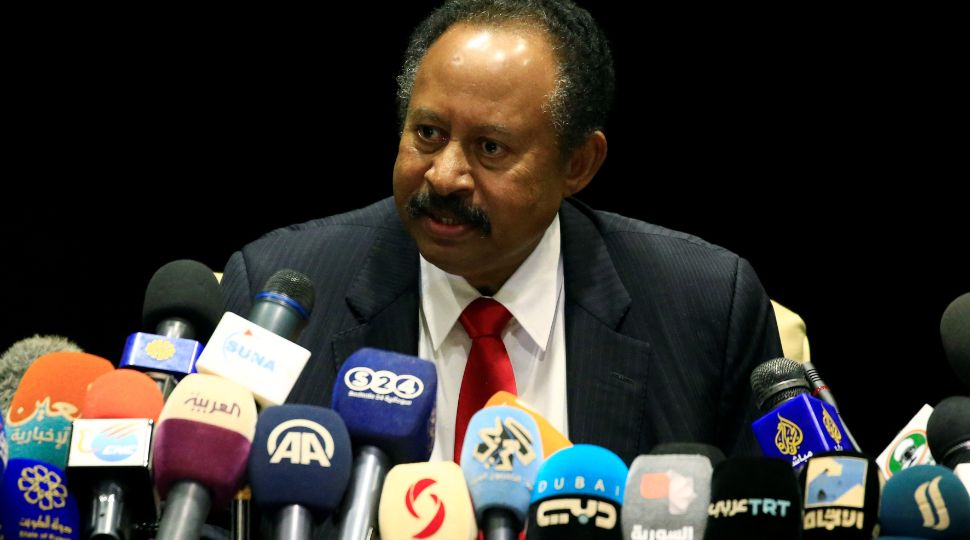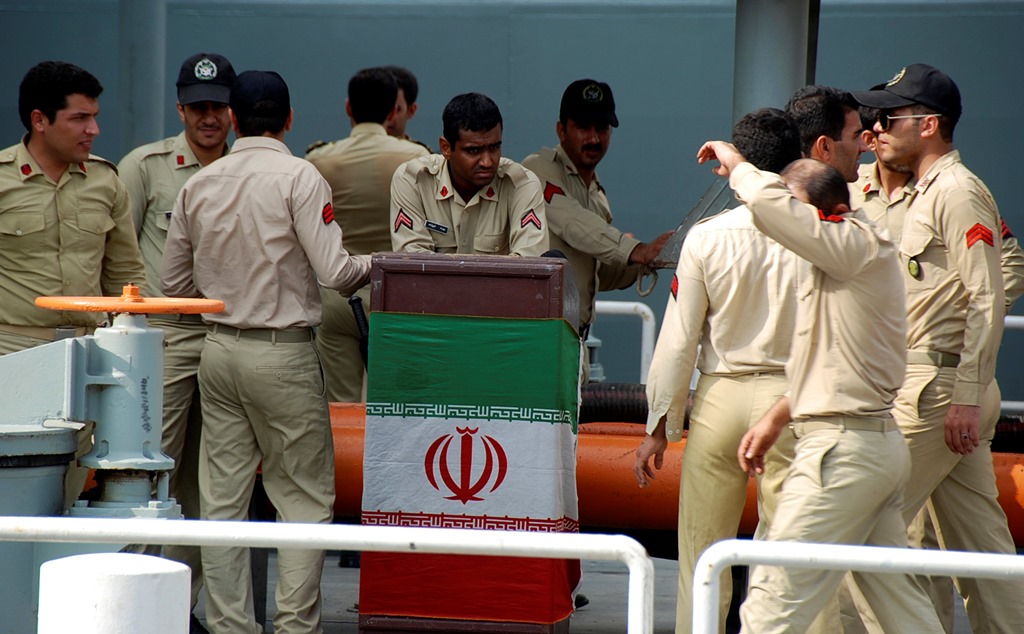Challenges for the Civilian Government of Sudan

Omar al-Bashir, who had ruled Sudan for 30 years, stepped down under pressure from mass, peaceful protests that started in December 2018. Initially, the power of the government shifted to a Transitional Military Council (TMC), which aimed to preserve the authoritarian system and enjoyed support from Saudi Arabia, the United Arab Emirates (UAE), and Egypt. On 3 June, TMC forces attacked the protesters, killing more than 100 people. Mediation by Ethiopia and the African Union (AU) pushed the military to relinquish power to civilian rule. On 8 September, the transitional, expert-led government of Hamdok, a Sudanese economist who had previously worked for the UN Economic Commission for Africa (UNECA), was sworn in. The majority of its members were nominated by the coalition Forces of Freedom and Change (FFC), which grouped parties and movements that had been fighting al-Bashir. The military kept five of the 11 seats on the newly established Sovereign Council—a kind of collective presidency—and the key ministries of defence and the interior. A 39-month transitional period was agreed to achieve peace, reform the economy, and form a multi-party system before elections in December 2022.
Dual Power
Before ascending to power, Hamdok didn’t control any sector of the security apparatus, which, besides the army and police, includes an array of paramilitary forces, so he needs to do so gradually. Particularly difficult relations are expected between the PM and warlord Mohamed Hamdan Dagalo, known as “Hemeti”, the leader of Rapid Support Forces (RSF), which numbers in the tens of thousands. The RSF grew out of the notorious Janjaweed, responsible for the genocide in Darfur. Hemeti aspires to lead Sudan and his forces control the country’s capital, Khartoum, where they are stronger than the army, thanks in part to equipment delivered by the UAE. The RFS attracts recruits with high salaries, thanks to the organisation’s wealth accumulated through smuggling and mercenary activities in Yemen and Libya. To maintain the balance between the civilian and military partners within the transitional authorities, international pressure on Saudi Arabia and UAE to scale down their support for Hemeti is necessary. Also important will be the inclusion of the other numerous armed factions, including rebels, into the national army and dismantling al-Bashir’s security services.
Economic Situation
Sudan’s economy is near collapse. In the last year, the cost-of-living figures and inflation increased drastically. The new finance minister, Ibrahim al-Badawi, formerly with the World Bank, announced a 200-day plan for macroeconomic stabilisation, stopping price growth, limiting youth unemployment, and strengthening central economic institutions. This will require significant financial support. Under al-Bashir, 70% of the state budget was allocated to the security apparatus. Almost all of Sudan’s oil and gold export revenues were spent for this purpose and foreign exchange reserves were not maintained. These reserves must be rebuilt and the budget remodelled. The prime minister estimated the country needs $8 billion, in a stabilisation and assistance package. But international financial aid may not be swiftly available because Sudan remains on the U.S. list of state sponsors of terrorism (since 1993). This is why Minister of Foreign Affairs Asma Mohamed Abdalla, one of four women in the 18-member cabinet, has announced changing this status as her highest priority. At later stages of the transition period, the government plans to limit the economy’s reliance on the export of raw minerals through industrialisation. It also wants to shift away from subsidising basic goods, such as bread, which could incite protests, especially since the reduction is scheduled for the pre-election period.
International Setting
Under al-Bashir, Sudan exercised a multi-vector foreign policy. It supported Saudi Arabia’s war effort in Yemen with 18,000-20,000 troops from the RSF and Sudanese army. Simultaneously, Sudan developed relations with regional rivals of the Saudis—Qatar and Turkey—as well as with China and Russia. After the fall of al-Bashir, real power moved to those officers who had directly supervised the Yemeni mission, namely Hemeti and Gen. Abdel Fattah al-Burhan, currently presiding over the Sovereign Council. As Saudi and Emirates protégés, they were offered $3 billion in aid and investments from those countries, which is how the Saudis and their allies have tried to extend control over the situation in Sudan. The new Sudanese government, though, will try to limit its reliance on the Gulf states. In Libya, al-Bashir favoured Islamist factions of the Tripoli-based government. The TMC, and later Hamdok’s government, pursued limiting foreign support for Sudanese Islamists and shifted alliances towards the Libyan National Army of Gen. Khalifa Haftar, although working out a coherent Libyan policy will be difficult as both the RSF and Darfuri rebel movements have their own agendas in Libya. In Southern Libya, the Darfuris forge local alliances with Chadian factions and Tebu tribal militias and fight as mercenaries on all sides. The authorities of South Sudan, which Hamdok visited on his first official foreign trip, may help fix this situation. They are mediating between the factions, asking the Sudanese rebel groups, which they used to support, to lay down their arms. That would allow the Darfuri fighters to return from Libya to Sudan. In parallel, Hemeti is building his own contingent in Libya (4,000 strong), recruiting and increasing his influence in gold-mining Sahelian states with Arab minorities, particularly in Chad. The changes in the regional setting are accompanied by Sudan opening up towards the EU and the U.S., which support the country’s transition to full civilian rule. The new authorities have offered frequencies for BBC Arabic broadcasts on FM radio and declare they will allow the return of Western aid agencies expelled by al-Bashir. EU states expect the return of direct flights between Khartoum and European capitals. The U.S. under Trump initially scaled down its engagement in Sudan but changed policies after the massive repression against demonstrators in June. These protests played a key role in convincing the Gulf states to support AU actions towards ending military rule. The post of special envoy to Sudan was restored and diplomat Donald Booth has returned to the job.
Conclusions
The transition process in Sudan has accelerated since the swearing-in of Hamdok’s civilian government. Tactically, he will need to keep the RSF satisfied, both because they are able to take power by force now and the PM needs to limit their influence at a later stage. This goal would be easier to achieve if international financial institutions offer greater sums than the Gulf states have pledged. For the U.S., the perspective of removing the last sanctions against Sudan presents a bargaining chip for the Sudanese generals and states in the region to complete the transition. For the EU, its support for the changes is a means to repair its image damaged after policies limiting irregular migration backfired; when Hemeti dispatched militias to patrol the country’s northern border to stop migration, it suggested cooperation between the EU and the paramilitaries.
The formula of civilian-military cooperation, unavoidable if Sudan is to move forward, brings a number of challenges. The model of lengthy expert-led transitions is attractive for states emerging from dictatorship, and it even enjoys grassroots support in Algeria, contrary to its military rulers’ push for hasty elections. For Poland, Sudan is an attractive investment field—in 2018, an economic mission visited the country and Sudanese graduates of Polish universities are willing to help arrange business contacts. Stabilisation would allow the restoration of the Polish embassy and an increase in investments and exports in the food industry and others. The success of the reform in Sudan depends on the consistency of international support, mostly by the IMF, EU, and the U.S., and a sensible increase in quality of life. This perspective is achievable and Sudan could serve as a partnership model in Africa as promoted by the EU, one that stresses the importance of human rights standards and counters strengthening new, authoritarian actors. This is particularly important as Russia, Turkey, and the UAE eye the Sudanese coast as a potential location for military installations and the Emirates’ political and economic expansion progresses from Ethiopia and Eritrea towards the Sahel.





